
Tesla Model S dahsboard. Flickr Image.
Tesla’s shares outstanding have significantly risen over the last few years.
Tesla’s rising common stock outstanding may lead to a phenomenon called stock dilution, an effect that reduces the ownership of existing shareholders.
Other than a reduction in ownership, stock dilution also can cause a decline in earnings per share (EPS) due to the increase in the number of stocks outstanding.
Furthermore, the dividends per share, if Tesla pays dividends, also may decrease.
The good news is that equity issuance comes with less risk compared to having more debt.
When Tesla issues more equity to raise cash, it does not have to repay the capital.
The downside to equity issuance is that it dilutes the control of the company.
On the other hand, Tesla needs to repay the debt that it borrows, which usually comes with hefty interest expenses.
Let’s look at more details starting with the table of contents below.
Table Of Contents
Shares Outstanding Information
A1. Where To Find
Shares Outstanding Results
B1. Shares Outstanding Numbers
B2. Shares Outstanding Growth Rates
Reasons Of Stock Dilution
C1. Stocks Issuance In Public Offerings
C2. Stocks Issuance For Equity Incentive Awards
C3. Convertible Debts
Effect Of Stock Dilution
D1. Effects Of A Growing Stock Outstanding
Conclusion And Reference
S1. Conclusion
S2. References and Credits
S3. Disclosure
Where To Find Tesla’s Shares Outstanding
Tesla’s shares outstanding can be uncovered in the company’s balance sheet under the stockholders’ equity section as shown in the following snapshot:
Tesla stockholders equity – 2Q 2023
(click image to expand)
From the snapshot above, Tesla has not issued any preferred shares as of Q2 2023 even though the number of authorized preferred stocks is 100 million outstanding.
Theoretically, Tesla can issue up to a maximum of 100 million preferred stocks.
On the other hand, Tesla has authorized up to 6 billion common stocks.
Theoretically, Tesla can issue up to a maximum of 6 billion common stocks.
As of 2Q 2023, Tesla had 3.17 billion common stocks outstanding.
Shares Outstanding Numbers
Tesla common stocks outstanding
(click image to expand)
Tesla’s common stocks outstanding reached a massive 3.17 billion as of 2Q 2023, a record figure since 2015.
Over the years, the growth of Tesla’s common stock has seemed unstoppable, albeit at a slow pace.
What is actually causing Tesla’s shares outstanding to grow?
We will come to that in the next discussions.
Shares Outstanding Growth Rates
Tesla outstanding stocks growth rates
(click image to expand)
There are quite a few spikes that exceed 1%. These spikes represent Tesla’s most significant shares outstanding quarterly growth.
For example, the most significant one occurred in Q2 2016 when stocks outstanding increased by more than 10% from the prior quarter.
Similarly, share outstanding increased by close to 8% in 4Q 2016 from the prior quarter.
The most recent one occurred in 4Q 2021 when shares outstanding grew by 2.9% or 90 million shares.
Although the growth of share outstanding (those exceed 1%) is a common occurance, it seems to occur less in recent years.
While share outstanding growth seems slowing down, there is still a lot of growth that hovers below 1%, indicating that stocks outstanding are still increasing.
Stocks Issuance In Public Offerings
One reason Tesla’s shares outstanding increased is stock issuance by the company in public offerings.
The purpose of stock issuance in public offerings is to raise cash from the capital market.
In this aspect, Tesla issues new shares and investors subscribe to these new shares by paying a premium.
The premium can be determined according to the stock price in the open market or a pre-determined stock price.
If the pre-determined stock price is lower than that in the open market, Tesla’s share price will fall as soon as the stock issuance takes place.
The following examples detail some of Tesla’s stock issuance events.
Stocks Issuance in 3Q 2015
In August 2015, Tesla issued 3 million common stocks to raise $738 million.
This event led to the growth of common stocks outstanding by 3% in 3Q 2015.
Stocks Issuance in 2Q 2016
This was a large jump in share count by more than 10% in 2Q 2016.
The outstanding shares grew from 134 million in 1Q 2016 to 148 million in 2Q 2016.
As many as 14 million shares were added in just a single quarter.
In May 2016, Tesla issued about 8 million common stocks to the public at $215 per share (before adjusted for split) to raise $1.7 billion of cash.
Stocks Issuance in 4Q 2016
In 4Q 2016, Tesla’s common stocks outstanding increased from 150 million to 162 million in 4Q 2016, an 8% growth from quarter to quarter.
The increase was mainly a result of Tesla’s acquisition of SolarCity.
In 4Q 2016, Tesla issued 11 million common stocks at $185 per share (before adjusted for split) to buy SolarCity. The deal was valued at $2.15 billion.
Stocks Issuance in 2Q 2019
In May 2019, Tesla issued 3.5 million common stocks to raise $850 million.
In the same quarter, Tesla also issued about 900k of common stocks for an aggregate value of $207 million to acquire Maxwell Technologies, Inc.
The combination of stock issuance and acquisition had caused the common stocks outstanding to increase by nearly 4% in 2Q 2019.
Stocks Issuance in 1Q 2020
In this quarter, Tesla issued more than 3 million common stocks at $767 per share (before adjusted for split) to raise $2.31 billion of cash.
Stocks Issuance in 4Q 2020
In this quarter, Tesla issued more than 8 million common stocks to raise $5 billion of cash.
Stocks Issuance For Equity Incentive Awards
Tesla stock-based compensation expenses
(click image to expand)
Another reason Tesla’s common stocks outstanding increased is the company’s equity incentive awards.
Under the equity incentive award, Tesla provides for the grant of stock options, restricted stock, RSUs, stock appreciation rights, performance units and performance shares to employees, directors and consultants.
When new common stocks are issued or granted, the company will incur an expense known as stock-based compensation expense.
Stock-based compensation expense is a charge against revenue.
In other words, stock-based compensation expense will reduce Tesla’s profitability.
While stock-based compensation is an expense, it’s a non-cash expense, meaning that it does not affect Tesla’s cash flow from operating activities.
Based on the chart above, Tesla’s stock-based compensation expense has risen significantly since 2015 and topped $1.6 billion as of 2Q 2023 on a TTM basis.
Although the figure has slightly declined in recent quarters, it was still a significant number at $1.6 billion and the number worked out to roughly $400 million per quarter.
Tesla’s stock issuance for equity incentive awards has contributed not just a substancial number of shares outstanding but also stock-based compensation expenses which tend to reduce profitability.
Convertible Debt
In addition to stock issuances in public offerings and for equity incentive awards, another reaons that leads to the increasing shares outstanding is the exercise of the conversion feature of convertible debt.
For your information, Tesla holds a number of convertible debts as of 2022 1Q, according to this article – Tesla’s securities.
As the name implies, convertible debts are available for conversion by their holders to common stocks when Tesla’s stock closing price exceeds an applicable conversion price of the debts.
To simplify things, when Tesla’s stock price hit a certain threshold, say $500 per share, for a number of days in a quarter, the holders have the option to exchange a portion of or even the whole debt for common stocks.
In this case, Tesla will pay cash to settle the principal amount and issue common stocks for the conversion premium.
These common stocks issued will certainly increase the outstanding stocks.
The question is, how many outstanding stocks have been added?
According to the following snapshot that depicts Tesla’s statements of equity, about 2 million shares outstanding or less than 1% of total shares outstanding attributed to convertible debts have been added in 2020 and the amount was about 1 million in 2021.
Tesla outstanding stocks growth attributed to convertible securities
(click image to expand)
The 3 million shares outstanding added seems like a small number.
Yes, the effect of the convertible securities on Tesla’s shares outstanding may look like nothing.
However, when you add up all the things that had fueled the growth of Tesla’s shares outstanding, the effect has been devastating.
Effects Of A Growing Stocks Outstanding
As mentioned, the effect is stock dilution.
What is stock dilution?
Here is an example.
Tesla has 100 shares outstanding, and you own 50 of them.
That means your ownership of Tesla is 50% of the company.
Later, Tesla launches a public offering and issued 100 more shares.
So, the total shares outstanding now have become 200.
You still own the 50 shares, but the percentage of your ownership of Tesla has now become only 25%.
Your ownership has dwindled to only a quarter of the company.
Summary
Between 2015 and 2022, Tesla’s common stock outstanding has increased quite dramatically, and the effect is stock dilution for existing stockholders.
Tesla issued more stocks to raise cash, and this practice has fueled the growth in shares outstanding.
Additionally, Tesla also issued stocks to employees, contractors, directors and CEO as part of the company’s equity incentive awards.
However, this practice also led to an increase in shares outstanding.
Following the stock issuance, Tesla’s stock-based compensation expense has exploded and reached more than $2 billion in 2021 alone, a record for the company.
Keep in mind that the stock-based compensation expense will reduce the net income and thereby, the earnings per share or EPS.
Tesla’s convertible securities also fueled in part the growth of the company’s share outstanding, albeit at a very small amount.
References and Credits
1. All financial figures presented in this article were obtained and referenced from the company’s SEC filings, earnings releases, investors presentations, update letters, quarterly and annual reports, etc., which are available in Tesla Financial Results.
2. Featured image was used under Creative Common Licenses and obtained from e-connected and Sandman Design.
Disclosure
References and examples such as tables, charts, and diagrams are constantly reviewed to avoid errors, but we cannot warrant the full correctness of all content.
The content in this article is for informational purposes only and is neither a recommendation nor a piece of financial advice to purchase a stock.
If you find the information in this article helpful, please consider sharing it on social media and also provide a link back to this article from any website so that more articles like this one can be created in the future.
Thank you!


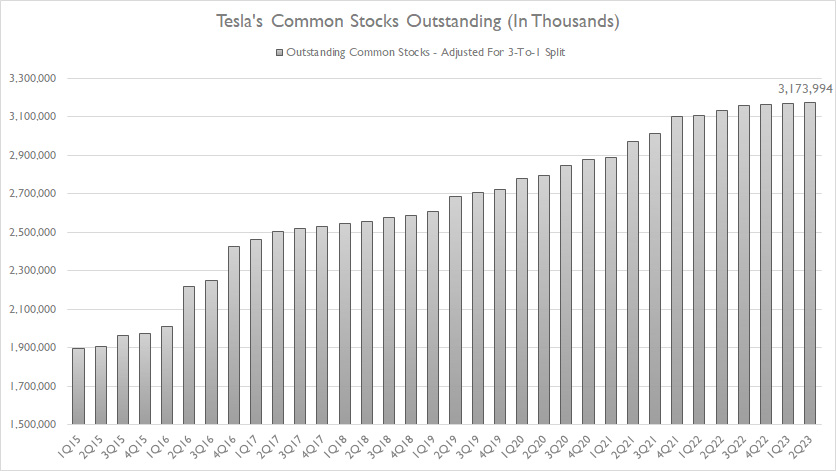
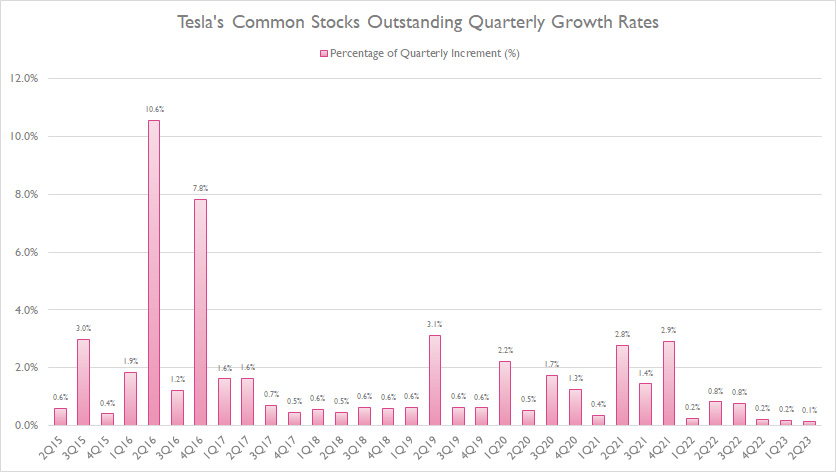
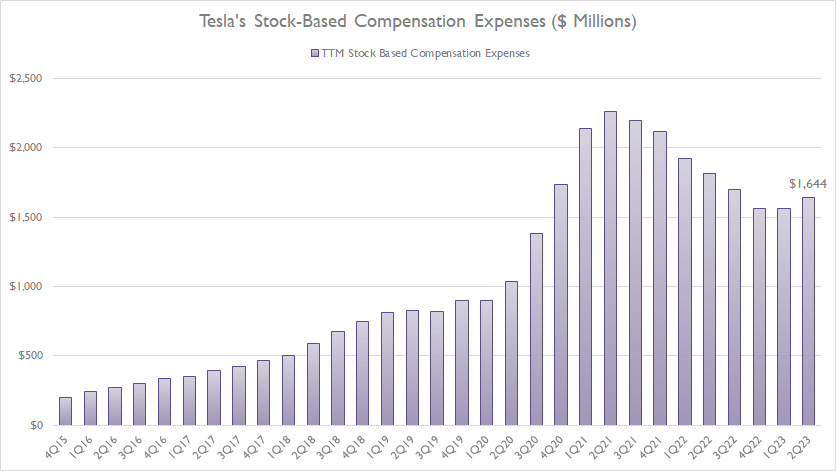
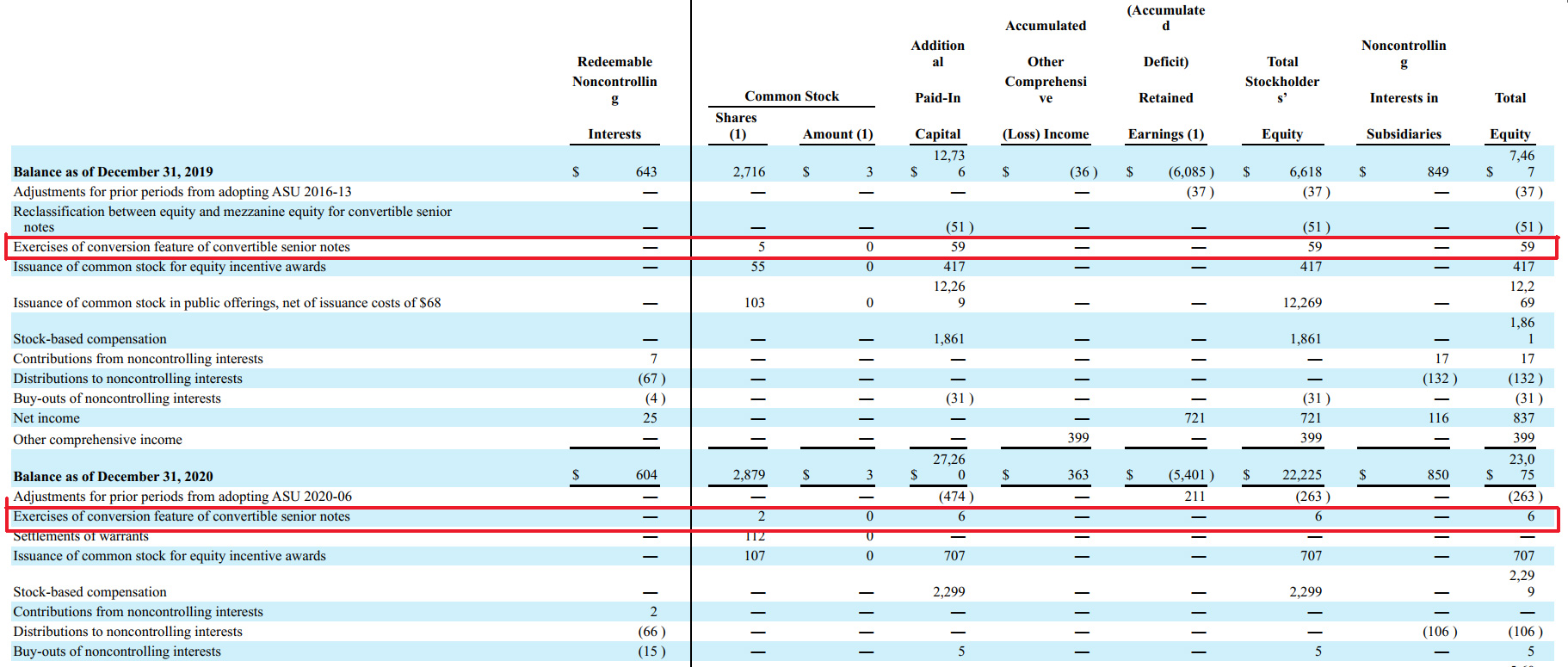

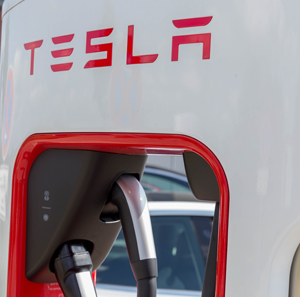







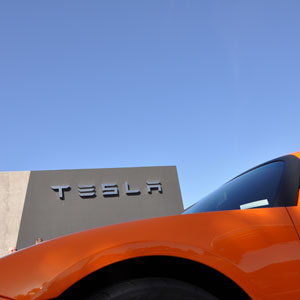

Is this what will happen to chipotle’s stock when it splits ?
No, stock split is different and does not dilute shares.